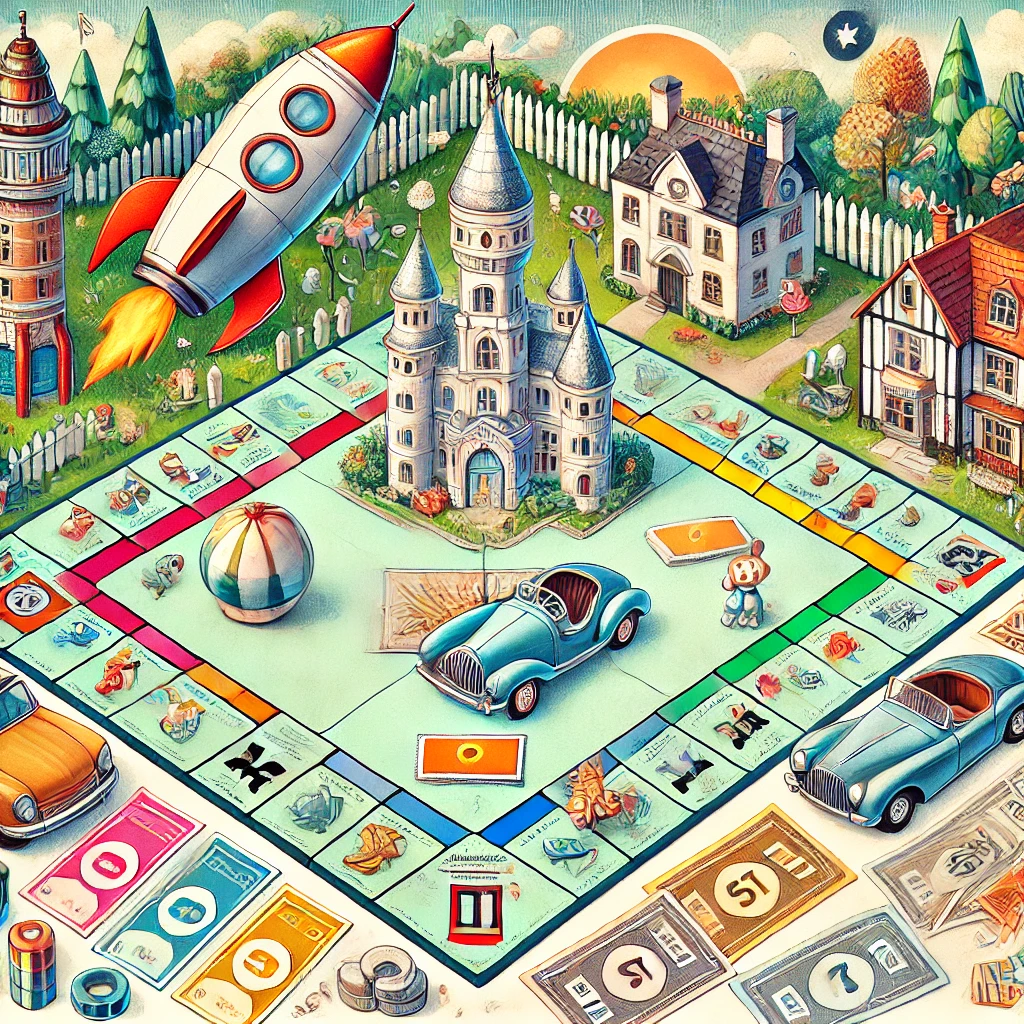Monopoly, the board game that has tested friendships and family ties since the 1930s, has somehow expanded into an empire of themed editions. What began as a single game about climbing the property ladder—or ruthlessly bankrupting your loved ones—has turned into a branding juggernaut with versions for every fandom, hobby, and obscure interest imaginable. Fancy bankrupting someone in Star Wars Monopoly? Sure. Prefer to do it in Horse Lovers Monopoly? That exists too. There’s even Ketchup Monopoly, because apparently, condiments needed representation on the board.
At some point, though, you have to wonder: why? Why do we need this many Monopolies? Who asked for Cheese Lovers Monopoly? And, more importantly, does anyone actually want to play Pizza Monopoly?
The story began innocently enough with the original Monopoly, a game designed to critique the pitfalls of capitalism but which instead became a celebration of it. Players could gleefully bankrupt their friends as they snapped up classics like Mayfair, Park Lane, and Trafalgar Square. But somewhere along the way, Monopoly became less about the properties and more about the theme. Themed editions started cropping up, each one more baffling than the last.
There’s Monopoly: Stranger Things Edition, where you can flip the board (literally) to the Upside Down. There’s Millennial Monopoly, where you collect experiences instead of houses because, as the tagline reminds us, “You can’t afford to buy property anyway.” There’s even Monopoly for Cheaters, which feels less like a gimmick and more like an acknowledgment of how we’ve all been playing the game since childhood.
The absurdity doesn’t stop there. If you’ve ever dreamed of trading on Monopoly: Cornwall Edition, featuring Truro and St Ives, or Monopoly: Great British Bake Off Edition, you’re in luck. These themed versions don’t actually change the gameplay; they just repackage the board, swapping Marlborough Street for the Millennium Falcon or Old Kent Road for a slice of Victoria sponge. It’s like Monopoly’s genius lies not in creating a better game but in tricking us into buying the same one over and over again.
Of course, the genius of themed Monopoly is its nostalgic pull. People don’t necessarily buy Monopoly: Harry Potter Edition because they’re itching to argue over rent payments in Hogsmeade. They buy it because it reminds them of something they love. It’s not about gameplay anymore—it’s about branding, identity, and, let’s face it, filling a gap on the Christmas shopping list. Monopoly is no longer just a game; it’s a collectible, a gift, and occasionally a punchline.
But how often are these editions actually played? Let’s be honest: Monopoly is infamous for being long, tedious, and prone to arguments over whether or not Free Parking should generate income. It’s the board game equivalent of marmalade—most people like having it in the house but don’t use it nearly as much as they think they will. Yet the editions keep coming.
This raises a crucial question: where does it end? Will we eventually get Monopoly: British Weather Edition, where you can buy properties like Drizzly Lane and Gale Force Street? What about Monopoly: Brexit Edition, where negotiations over trading in the European Union replace Chance cards? Or perhaps the ultimate absurdity: Monopoly: Monopoly Edition, where every property is themed around another version of Monopoly, forcing players into an infinite loop of themed recursion.
The truth is, Monopoly is unstoppable. Its ability to reinvent itself has made it a staple of living rooms and charity shops alike. Whether you’re a fan of Sherlock, Paddington Bear, or just really into Cornwall, there’s a Monopoly for you. It’s the board game equivalent of a sequel-heavy blockbuster franchise (cough Fast and Furious cough), giving people just enough novelty to keep coming back for more.
Do we really need 300 different versions of Monopoly? Probably not. But as long as collectors exist, families need Christmas entertainment, and branding teams have new ideas to pitch, the Monopoly machine will keep rolling its dice. Whether you’re buying Mayfair or Hogwarts, one thing’s for certain: you’ll still argue over Free Parking, and nobody will finish the game.
James Henshaw is a brooding Geordie export who swapped the industrial grit of Newcastle for the peculiar calm of Lincolnshire—though he’s yet to fully trust the flatness. With a mind as sharp as a stiletto and a penchant for science-tinged musings, James blends the surreal with the everyday, crafting blogs that feel like the lovechild of a physics textbook and a fever dream.
Equally at home dissecting the absurdities of modern life as he is explaining quantum theory with alarming metaphors, James writes with the wit of someone who knows too much and the irreverence of someone who doesn’t care. His posts are infused with a dark humour that dares you to laugh at the strange, the inexplicable, and the occasionally terrifying truths of the universe—whether it’s the unnerving accuracy of Alexa or the existential menace of wasps.
A figure of mystery with a slightly unsettling edge, James is the sort of bloke who’d explain the meaning of life over a pint, but only after a dramatic pause long enough to make you question your own existence. His wit cuts deep, his insights are sharp, and his ability to make the surreal feel strangely plausible keeps readers coming back for more.
Discover more from untypicable
Subscribe to get the latest posts sent to your email.
